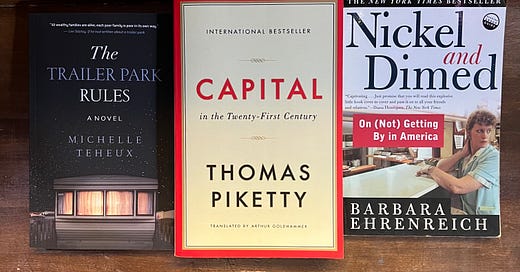Morality and money might nod to each other on the street, but they’ve never been over to the other’s house for a backyard barbeque.
They don’t have much of a relationship. That doesn’t mean people don’t try to get them together – just that the two of them seem to…
Keep reading with a 7-day free trial
Subscribe to Untrickled to keep reading this post and get 7 days of free access to the full post archives.





